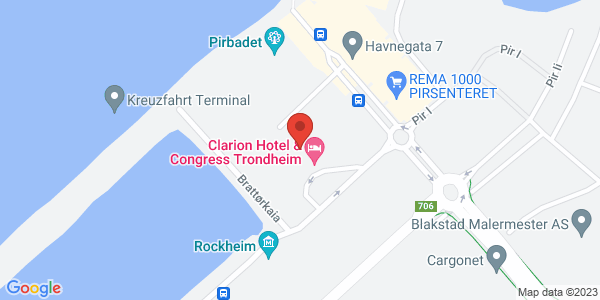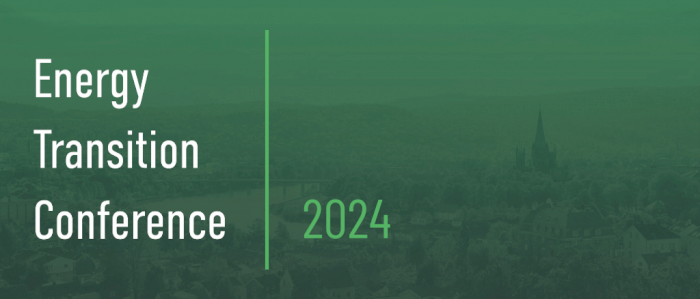NTNU Energy Transition Conference 2024
Tuesday 12 March 2024
09:00 – 18:00
Clarion Hotel Trondheim
Clarion Hotel & Congress Trondheim, Brattørkaia, Trondheim, Norway
About the event
Organizer: NTNU Energy Transition Initiative
The NTNU Energy Transition Conference is an annual event where academia, industry and policymakers meet to discuss the transition to a sustainable energy system.
The event is free and available to everyone.
Theme: Building Momentum for Sustainable Solutions
12 March 2024 | Clarion Hotel in Trondheim, or watch it online
Program (preliminary):
In addition to keynote opening and closing remarks, the program will consist of the following three main sessions:
Session I: Scaling Markets and Solutions
On the journey towards a sustainable energy transition, a pivotal aspect is the upscaling of green technologies and solutions. The development needs ramping up if we are to meet our goals. This raises questions, like:
- How can we effectively balance environmental preservation and cultural practices with the pressing need for faster implementation of renewable generation?
- What political incentives and new regulations must be implemented to catalyze faster change?
- How can and should education and workforce development help us deliver the competence needed at the right time?
- How does international competition and geopolitics affect investments?
This session will focus on the need for action to reach the targets of the Paris-agreement, and the need to recognize global differences and the challenges of emerging economies.
Session II: Unlocking Resilient Circular Economies
In this session we will shed light on the role of circular value chains in the energy transition. Sustainable solutions rely on robust supply chains beyond the scope of the energy sector alone. Manufacturers grapple with the challenges of meeting escalating demand, increased deglobalization and geopolitical tension while also navigating the complexities of the energy transition themselves, like reducing emissions and strict technological and environmental regulations. This raises critical questions, like:
- How can we safeguard the resilience of vital components within a circular economy when the materials required by emerging green technologies and the surrounding regulations, remains uncertain?
- How does deglobalization affect the circular value chains?
- And how does this again influence the transition of transport and industry?
Session III: Tensions in the Transition - Nature, Culture and Democracy
The energy transition and the required speed with which it needs to happen inevitably leads to conflicts between decarbonizing the energy system and other important domains such as biodiversity, cultural traditions, and human needs. In this session, we will outline these challenges by looking at examples and explore ways to balance these legitimate needs and perspectives.
- How can we equip our democracies with the tools to be able to both make fast decisions, succeed with the sustainable transition, and engage citizens and stakeholders in a fair and balanced way?
- How can we progress from resistance to not just acceptance but engagement in the transition?
- How can we monitor the progress of this transition beyond looking at GDP and CO2 emissions, for example by assessing well-being effects, natural and cultural wealth?
Conference’ webpage: www.ntnu.edu/energytransition/conference.

Clarion Hotel Trondheim
Clarion Hotel & Congress Trondheim, Brattørkaia, Trondheim, Norway

NTNU Energy Transition Conference 2024
Tuesday 12 March 2024
09:00 – 18:00
Clarion Hotel Trondheim
Clarion Hotel & Congress Trondheim, Brattørkaia, Trondheim, Norway
About the event
Organizer: NTNU Energy Transition Initiative
The NTNU Energy Transition Conference is an annual event where academia, industry and policymakers meet to discuss the transition to a sustainable energy system.
The event is free and available to everyone.
Theme: Building Momentum for Sustainable Solutions
12 March 2024 | Clarion Hotel in Trondheim, or watch it online
Program (preliminary):
In addition to keynote opening and closing remarks, the program will consist of the following three main sessions:
Session I: Scaling Markets and Solutions
On the journey towards a sustainable energy transition, a pivotal aspect is the upscaling of green technologies and solutions. The development needs ramping up if we are to meet our goals. This raises questions, like:
- How can we effectively balance environmental preservation and cultural practices with the pressing need for faster implementation of renewable generation?
- What political incentives and new regulations must be implemented to catalyze faster change?
- How can and should education and workforce development help us deliver the competence needed at the right time?
- How does international competition and geopolitics affect investments?
This session will focus on the need for action to reach the targets of the Paris-agreement, and the need to recognize global differences and the challenges of emerging economies.
Session II: Unlocking Resilient Circular Economies
In this session we will shed light on the role of circular value chains in the energy transition. Sustainable solutions rely on robust supply chains beyond the scope of the energy sector alone. Manufacturers grapple with the challenges of meeting escalating demand, increased deglobalization and geopolitical tension while also navigating the complexities of the energy transition themselves, like reducing emissions and strict technological and environmental regulations. This raises critical questions, like:
- How can we safeguard the resilience of vital components within a circular economy when the materials required by emerging green technologies and the surrounding regulations, remains uncertain?
- How does deglobalization affect the circular value chains?
- And how does this again influence the transition of transport and industry?
Session III: Tensions in the Transition - Nature, Culture and Democracy
The energy transition and the required speed with which it needs to happen inevitably leads to conflicts between decarbonizing the energy system and other important domains such as biodiversity, cultural traditions, and human needs. In this session, we will outline these challenges by looking at examples and explore ways to balance these legitimate needs and perspectives.
- How can we equip our democracies with the tools to be able to both make fast decisions, succeed with the sustainable transition, and engage citizens and stakeholders in a fair and balanced way?
- How can we progress from resistance to not just acceptance but engagement in the transition?
- How can we monitor the progress of this transition beyond looking at GDP and CO2 emissions, for example by assessing well-being effects, natural and cultural wealth?
Conference’ webpage: www.ntnu.edu/energytransition/conference.
